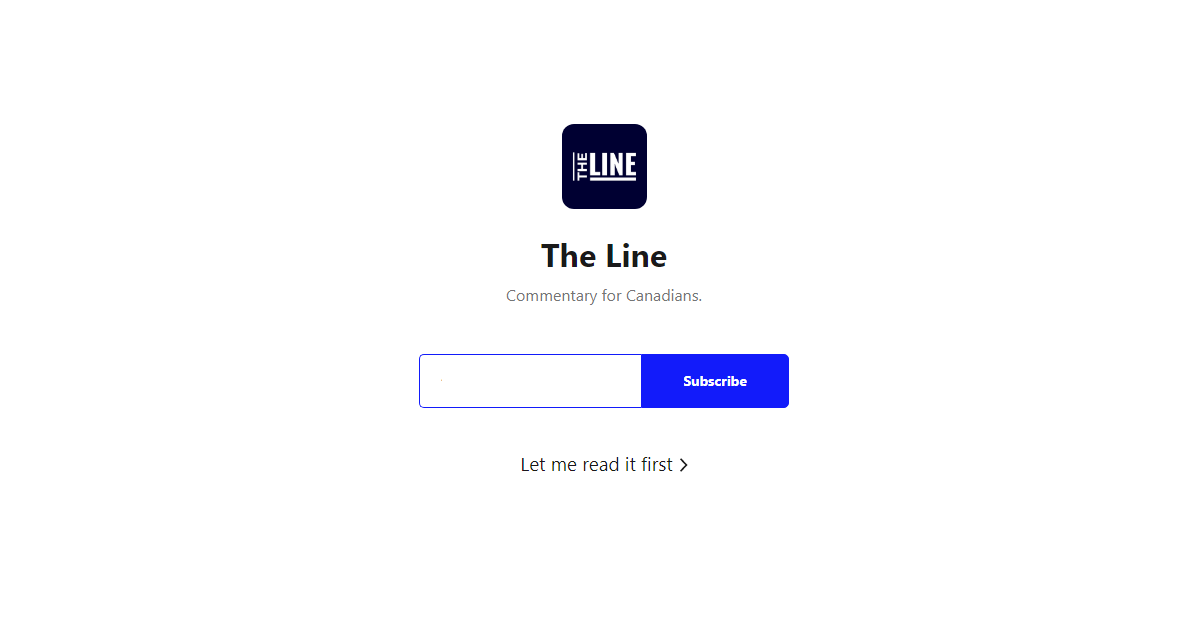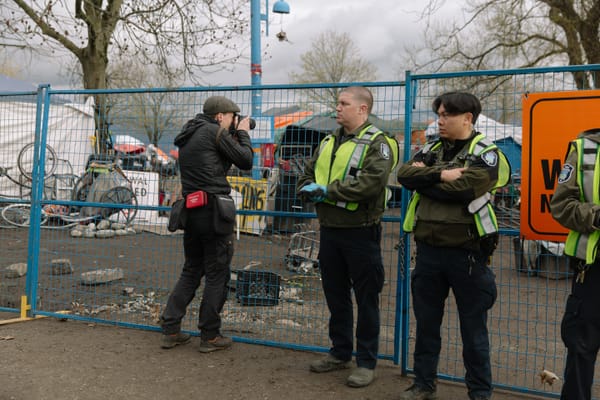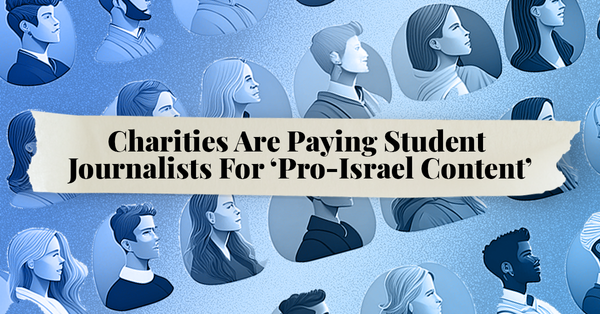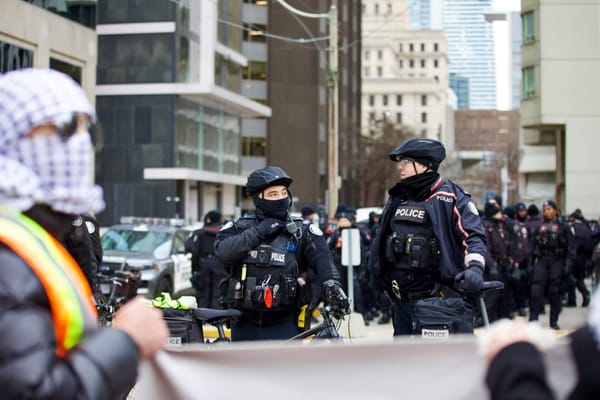Look, we’ve all fucked up before. Well, not me specifically, I’m perfect in every way, but people generally make mistakes. Errors in judgement. Oopsies.
Maybe you’ve left the cat food open on the counter and now it’s all over the floor because the cats found it. Maybe you’re trying to hang some pictures and you whack your thumb with the hammer and it hurts real bad. Maybe you’re the premier of Alberta and you let dozens of people in your province die and your hospital system get to the brink of collapse because helping them would require you to, y’know, help them. And maybe you’re a writer who saw the premier setting this all in motion, and decided to cheer it on, like what’s at stake is all just a game.
Fuck ups happen, is what I’m saying.
Over at the slightly heterodox Substack clearing house for Canadian pundits, The Line, Jen Gerson has written a mea culpa, of sorts. Maybe it’s supposed to be a defence of blind optimism? It’s really hard to classify, but in any case, Gerson has written about her own little oopsie, and by extension that of Alberta Premier Jason Kenney.
As you may know, Alberta is at a point of pandemic near-collapse. On Wednesday night, Kenney announced he’d be reimposing some pandemic restrictions, and introducing vaccine ID forms, mask mandates and distancing again because the province was 10 or so days from having no empty ICU beds. He’d recklessly dropped these restrictions to give Alberta the “Best Summer Ever” — they even made hats! — and now the province is cancelling surgeries for cancer patients and getting ready to triage who gets put on a ventilator.
Which brings us back to Gerson.
“We all hoped it would work. I did, certainly. Only a sadist would want Alberta’s Open for Summer plan to fail,” she writes (her emphasis).
“It was a risk, and that was pointed out. Many Albertans and many others in other provinces fretted. But there was a sound basis for daring to hope that increasing vaccinations would decouple severe outcomes from case rates, allowing us to re-open without imperilling health-care access.”
But there was a sound basis for daring to hope. Was there? Did this basis for hope exist, or was there something more at work?
Gerson again: “His approval ratings sat at historic lows — below even that of the approval of Justin Trudeau in Alberta,” she writes. And a bit later — I’m jumping ahead for space concerns, but don’t think I’m fucking with her meaning here — she goes on: “But the premier needed a win. He needed to be able to gloat — to hang our Best Summer Ever over his critics and enemies’ heads.”
Ah, see, here we’re getting to something. This wasn’t really about making sound choices that would best protect Albertans; it was about making the best choice for Kenney and his party.
The thing about betting — and I’ve done a bit, although with hilariously small amounts — is if you’re putting money on the outcome you want to happen, you’re going to get burned. Again and again. You have to bet with your head, not with your heart.
So when Gerson talks about Kenney pushing “all of his own remaining political capital into the pot,” she’s talking about someone looking to get burned. But that’s fine in her telling, or at least defensible, because Kenney was betting on an outcome that was just so good.
It’s a catastrophic failure of both the political and bureaucratic sides of the provincial government.
And the infuriating thread that runs through Gerson’s piece is an utter inability to acknowledge the cost of this gamble to anyone but the premier.
“So he we [sic] went all in, baby. Leeroy Jenkins-style,” Gerson writes.
It’s a cute line, I guess, and nods to her column at the start of the summer, celebrating how everything’s fine. It’s also a fun little throwback to that thing we all remember. But it also belies a fundamental unseriousness about this whole thing. It’s not a game. People’s lives are actually at stake. Besides, Leeroy gets everyone fucking killed.
This is pure callousness: A worldview so disconnected from actual people, and the suffering and death ripping through the province due to Kenney’s choices. His political calculus has killed people. Full stop.
Gerson gets to the nub of things near the end of the piece, the part that really put my jaw on the floor. Here’s two paragraphs:
“Kenney may be doomed, but he was was [sic] correct about one thing when he offered Albertans his infuriating apology-not-apology on Wednesday; we can’t lock down the population indefinitely. The more effective the measures we introduce to curb the spread of COVID, the longer the virus will take to burn its way through the remaining unvaccinated and vulnerable population, the more we prolong the crisis. In other words, we preserve the health-care system at the cost of our time.
“The choices left to us are all hard. We either implement some adequate spectrum of restrictions for months or maybe years in order to preserve health-care capacity — or we don’t, accept the consequence in death and move on. Sometimes I think this province rages at Kenney and our chief health officer Deena Hinshaw because it’s easier to blame them for their errors than to grapple with this fundamental trade off.”
The callousness of “or we don’t, accept the consequence in death and move on” just astounds me. There are actual people, right now, who aren’t going to get a necessary surgery, or will be deemed unlikely to survive long enough to bother even giving a ventilator.
Gerson frames this as a binary choice: either we open society up completely, or we live like cowering little mice, afraid to accept people die — not just of COVID-19, but of everything.
Yet it’s not a binary choice. It never has been. If a province takes things slowly enough and keeps some restrictions in place, people get to live.
Sure, Gerson may feel bad. But feeling bad doesn’t mean a damn thing if it fails to open your eyes to what’s at stake.







Member discussion